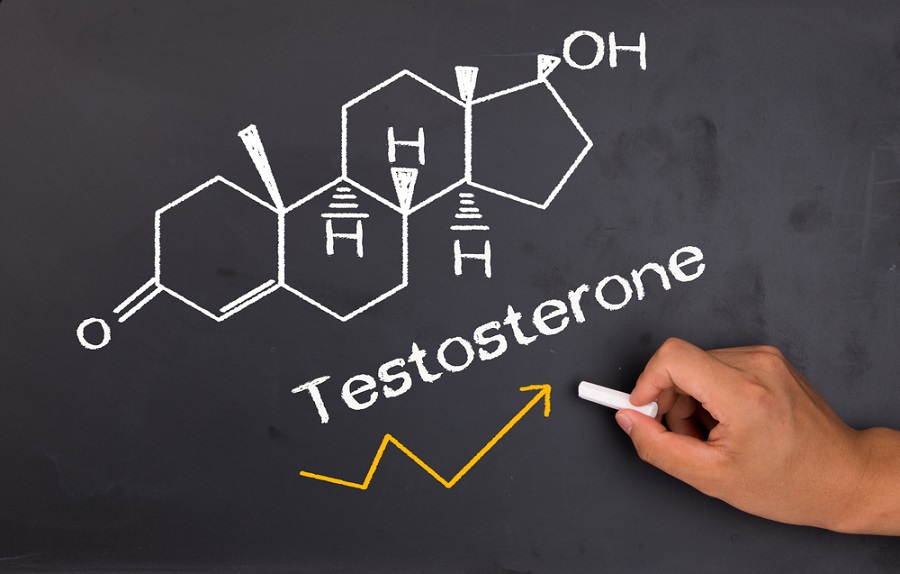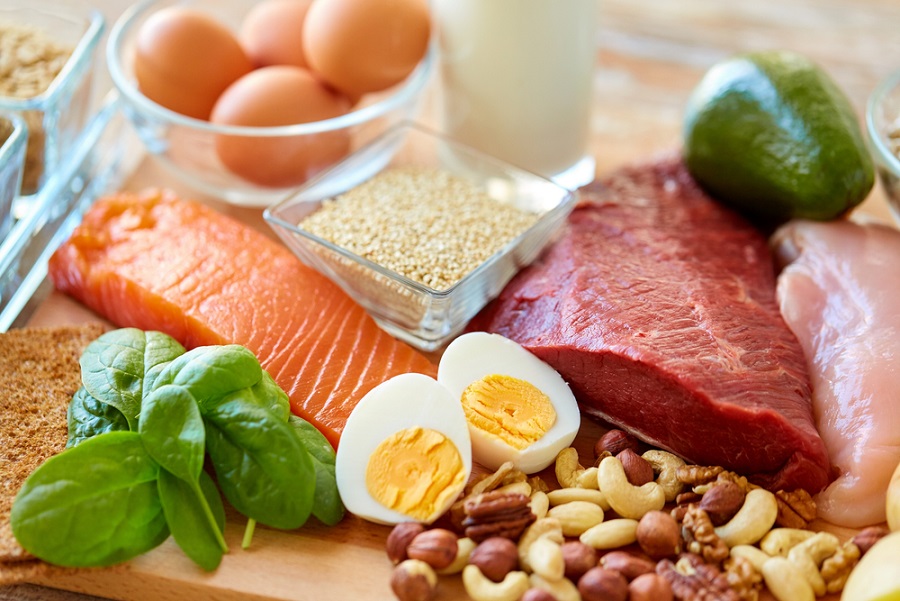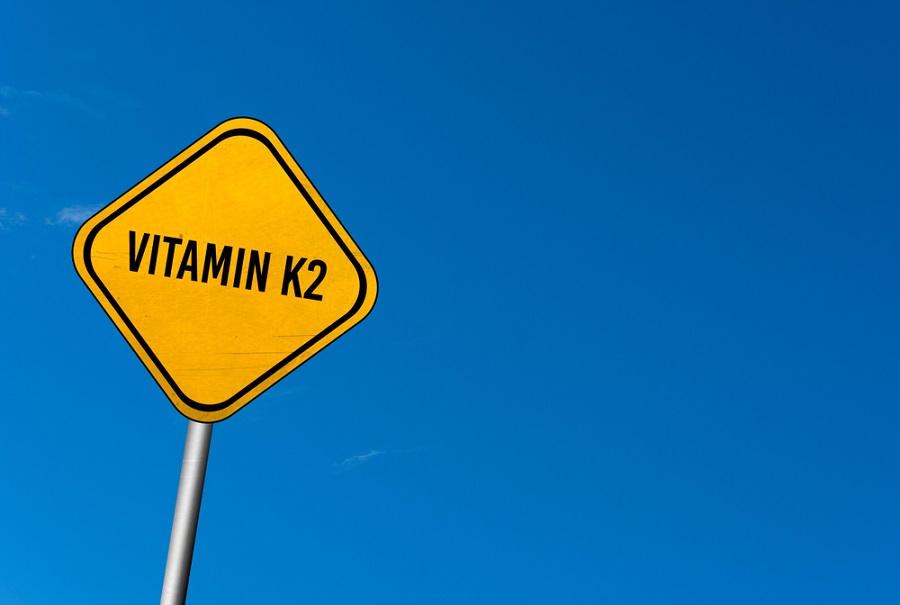- Animal studies suggest vitamin K2, especially the MK-4 form, may support testosterone production by enhancing testicular function and activating key hormone-producing enzymes.
- K2 maintains healthy blood flow by preventing calcium buildup in arteries, indirectly supporting testosterone delivery and erectile function.
- It activates osteocalcin, a bone-derived hormone linked to testosterone regulation and hormonal balance in men.
- K2 synergizes with nutrients like vitamin D and magnesium to support bone strength, heart health, and testosterone stability.
- Natural sources include fermented foods and grass-fed animal products; supplementation with MK-7 may be helpful if dietary intake is low.
Known primarily for supporting bone strength and heart function, vitamin K2 testosterone research has uncovered a possible connection between this nutrient and the hormone testosterone. This hormone affects everything from energy to muscle development to sexual function, especially in the context of men's health.
In contrast to vitamin K1, which mainly assists with clotting blood, vitamin K2 guides calcium into the bones and diverts it from soft tissues such as arteries. This process helps protect cardiovascular health while supporting strong bones. Recently, more people have been interested in how it may affect testosterone levels and the balance of hormones overall.
This blog aims to break down what science currently knows about the connection between vitamin K2 and testosterone. We'll explore how K2 interacts with the body, especially in relation to testicular function and testosterone production. Let's dive in.

What is Testosterone and Its Role in Men's Health
Testosterone is a crucial hormone for men's well-being. It is produced in the testes and is responsible for male physical characteristics. This hormone affects muscle mass, bone density, and body fat distribution. Additionally, it also influences mood, energy levels, and cognitive function.
It is important to maintain healthy testosterone levels for overall well-being. Low testosterone can disrupt hormonal balance and lead to several health concerns. Men with low testosterone often experience fatigue, mood swings, and decreased muscle strength. One of the most noticeable effects is a decline in sexual health, including lower libido and erectile dysfunction.
Testosterone production naturally declines with age. However, lifestyle factors also affect hormone levels. Similarly, poor nutrition or chronic illness can lower testosterone production, affecting the body's ability to function at its best.
What Is Vitamin K2?
Vitamin K2 is a form of vitamin that plays specific roles in the body, especially in bone and heart health. While many people are more familiar with vitamin K1, the two are different in both structure and function. Vitamin K1 mostly helps with blood clotting, while vitamin K2 supports the proper use of calcium in soft tissues and bones.
Both K1 and K2 are types of fat-soluble vitamins. This means the body absorbs them better when taken with dietary fats. Unlike water-soluble vitamins, fat-soluble ones are stored in the body, especially in the liver and fatty tissues.
Vitamin K2 exists in several subtypes. The two most common are MK-4 and MK-7. MK-4 comes from animal products like meat, liver, and eggs. MK-7 is usually found in fermented foods, especially fermented soybeans such as natto. These different forms of vitamin K2 stay in the body for different amounts of time and may offer varying benefits.
Most Western diets are rich in vitamin K1 due to leafy greens, but they tend to lack vitamin K2. This difference highlights the need to look at specific dietary sources. Animal products and fermented foods remain the top sources of vitamin K2. Without enough K2, calcium may build up in the wrong places, like blood vessels, rather than supporting bones.
Because vitamin K2 helps move calcium where it belongs, it works closely with other nutrients like vitamin D and magnesium. Each of these nutrients supports functions that keep bones strong and soft tissues healthy.
Science Behind Vitamin K2 and Testosterone Production
Testosterone production begins in the testes, specifically in cells called Leydig cells. These cells convert cholesterol into testosterone through a multi-step process called testosterone synthesis. While several nutrients play a role in this process, vitamin K2 has drawn attention for its influence on testicular testosterone production.
Menaquinone-4 (MK-4), a specific form of vitamin K2, has been shown in animal studies to support hormone production within the testes. Early evidence suggests a possible connection between vitamin K2 and testosterone, but more human research is needed.
One animal study published in Lipids in Health and Disease showed that rats fed a diet rich in MK-4 for five weeks had significantly higher testosterone levels, though human trials have not yet confirmed this effect. The increase was seen in both blood and testicular tissue. Interestingly, this rise in testosterone happened without a change in luteinizing hormone, which usually triggers testosterone production.
One animal study… showed that rats fed a diet rich in MK-4 for five weeks had significantly higher testosterone levels, though human trials have not yet confirmed this effect.
This suggests that vitamin K2 worked directly within the testes, possibly by improving Leydig cell function.The same study also found that MK-4 enhanced testosterone synthesis by activating the PKA signaling pathway. This led to higher production of an enzyme called CYP11A, which plays a key role in converting cholesterol into testosterone.
Emerging research suggests that vitamin K2 may also support testicular function by improving mitochondrial function and reducing oxidative stress. Healthier mitochondria produce more energy, allowing Leydig cells to function more efficiently.
These findings highlight how vitamin K2 supports enhanced testosterone production at the cellular level. While more studies are needed in humans, the early data show that vitamin K2 may play a helpful role in maintaining hormonal balance, especially in aging men. A well-supported body benefits from proper nutrition, and vitamin K2 may be one piece of that larger picture.
How Vitamin K2 Supports Heart Health and Testosterone
The heart and blood vessels do more than pump blood. They also support hormone delivery throughout the body, including testosterone. Healthy arteries allow blood to flow freely, helping the body function properly.
Vitamin K2 is essential for supporting heart health. It supports the movement of calcium into the bones and keeps it out of the arteries. Without enough vitamin K2, calcium can build up in artery walls, leading to arterial calcification. This buildup can reduce blood flow and strain the heart.
A study published in Thrombosis and Haemostasis found that those with higher vitamin K2 intake had a 50% lower risk of arterial calcification. The same study showed fewer cardiovascular events among participants who consumed more vitamin K2-rich foods. This points to strong benefits for overall heart and artery health.
Improved blood vessel function can also influence testosterone levels. Blood must reach the testes to support testosterone production. When blood vessels are healthy, oxygen and nutrients can reach the cells involved in testosterone synthesis.
Vitamin K2 supports the body in multiple ways. It strengthens cardiovascular health and helps protect the arteries, which in turn may support better hormonal balance. These benefits make vitamin K2 an important part of long-term health, especially for men looking to maintain steady testosterone levels as they age.
Bone Health, Hormonal Balance, and the K2 Connection
Vitamin K2 plays an active part in both bone health and hormonal balance. It helps move calcium into the bones where it belongs. Without enough vitamin K2, calcium may end up in soft tissues, including arteries, instead of strengthening bones.
Stronger bones rely on more than just calcium. The body also needs vitamin D and vitamin K2 to use calcium properly. These nutrients work together. Vitamin D absorbs calcium, and vitamin K2 directs it to your bones. This balance supports bone strength and lowers the risk of osteoporosis over time.
Hormonal balance is also linked to vitamin K2. Bones are part of the endocrine system and release hormones that affect the rest of the body. One of these hormones, osteocalcin, helps support testosterone levels in men. Vitamin K2 activates osteocalcin, which makes this process more efficient.
Sexual Health, Erectile Function, and Libido Support
Sexual health involves more than just hormone levels; it also depends on proper blood flow and nutrient support.
Vitamin K2 contributes to this by aiding the body's use of calcium, preventing buildup in blood vessels, and supporting better circulation. Improved blood flow enhances erectile function by ensuring oxygen-rich blood reaches the necessary areas.
Testosterone levels are also involved in libido and sexual function. Animal research has linked vitamin K2 to enhanced testosterone production, potentially through its impact on testicular cells and overall hormone balance, though human studies are still limited.
A study examined the effects of menaquinone-4 (a form of vitamin K2) on testosterone production in rats. Male Wistar rats were given a diet supplemented with MK-4 for five weeks. It found that testosterone levels in both plasma and testes were significantly increased in the MK-4-fed rats compared to controls, without notable changes in luteinizing hormone levels.
In vitro experiments with testis-derived tumor cells also showed elevated testosterone production upon MK-4 treatment. These findings suggest that MK-4 stimulates testosterone production via protein kinase A (PKA) activation, indicating a potential role in supporting testicular function.
Including vitamin K2 in a balanced diet, along with other nutrients such as vitamin D and magnesium, may help support healthy testosterone levels and improve sexual function. Although more human studies are necessary, these findings suggest that vitamin K2 could have potential benefits for men's sexual health.

Best Sources of Vitamin K2 and How to Supplement Safely
Vitamin K2 supports many areas of health, including testosterone regulation, bone strength, and cardiovascular function. While the body needs this nutrient, many diets fall short in providing enough of it.
Natural dietary sources of vitamin K2 include fermented foods, fermented soybeans, and various animal products. Foods like egg yolks, liver, and full-fat dairy from grass-fed animals provide moderate amounts of this vitamin. Additionally, fermented cheeses such as Gouda and Brie also contain small but beneficial doses of vitamin K2.
For those who don't eat these foods regularly, K2 supplementation can help fill the gap. It's often part of a supplement regimen designed to support bone and heart health.
When choosing a supplement, MK-7 is the most often recommended form due to its longer half-life in the body. A typical dosage ranges from 90 to 200 mcg per day. However, the right amount depends on individual needs and existing treatment plans.
Male Excel's Testosterone Cypionate injections and Lipoderm cream can form the foundation of a broader strategy to support hormonal health. Nutrients like vitamin K2 may complement this by supporting bone and cardiovascular health, though their direct impact on testosterone in men is still being studied.
It's best to consult a healthcare provider before starting K2 supplements, especially if you're on blood thinners or managing chronic conditions. A doctor can determine the right dosage and watch for any risk factors you may have.
Key Takeaway
Vitamin K2 supports several systems that influence men's overall health. It helps move calcium into bones and away from arteries and soft tissues. This supports stronger bones, healthier blood flow, and better cellular function.
These internal systems also affect hormone balance. Vitamin K2 testosterone support becomes more important as men age and hormone levels shift. When blood vessels stay clear and bones remain strong, the body has a better foundation for steady testosterone levels.
The effects go beyond muscle and energy. Vitamin K2 benefits sexually by supporting circulation and hormone balance, which both affect libido and performance. Many men overlook how daily nutrients shape sexual function and long-term vitality.
Modern diets often lack K2-rich foods like fermented soybeans or grass-fed dairy. That's why supplementation sometimes becomes a part of a smart wellness routine. A simple K2 supplement can help restore balance when diet alone isn't enough.
This blog explains well enough why vitamin K2 deserves more attention. It supports the core systems behind energy, stamina, and hormone health. When these body parts work together, testosterone has the conditions it needs to stay steady.
If you're working to improve hormone health or want to feel more in control of your energy and drive, Male Excel's testosterone therapy can be a helpful next step. Their care is built around expert guidance and personalized results.

Get TRT Online
Optimize Your Hormones
References
1. Ito, A., Shirakawa, H., Takumi, N., Minegishi, Y., Ohashi, A., Howlader, Z. H., Ohsaki, Y., Sato, T., Goto, T., & Komai, M. (2011). Menaquinone-4 enhances testosterone production in rats and testis-derived tumor cells. Lipids in Health and Disease, 10(1). https://doi.org/10.1186/1476-511x-10-158
2. Vik H. (2019). Highlighting The Substantial Body Of Evidence Confirming The Importance Of Vitamin K2 As A Cardio-Support Nutrient, And How The Right K2 Makes All The Difference. Integrative medicine (Encinitas, Calif.), 18(6), 24-28.
3. Ito, A., Shirakawa, H., Takumi, N., Minegishi, Y., Ohashi, A., Howlader, Z. H., Ohsaki, Y., Sato, T., Goto, T., & Komai, M. (2011). Menaquinone-4 enhances testosterone production in rats and testis-derived tumor cells. Lipids in Health and Disease, 10(1). https://doi.org/10.1186/1476-511x-10-158





